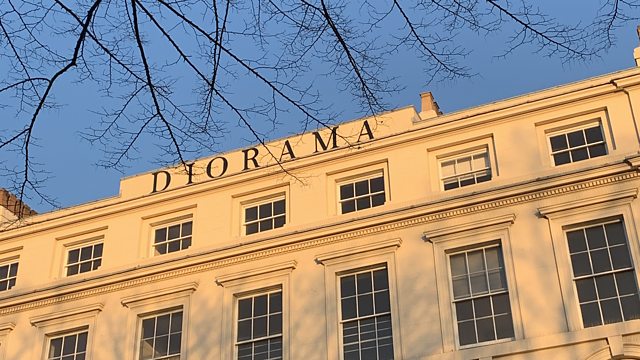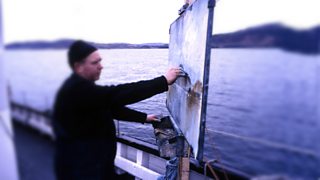Diorama Drama
Dr Lance Dann dramatically brings to life various techniques for delighting and mystifying our imaginations, asking what it takes for us to be given pleasure by immersion.
Before the magic of photography, the dazzle of cinema - there was the diorama.
Frenchman Louis Daguerre is known primarily as one of the inventors of photography - but before the magic of light fixed on paper there was the diorama, which some call the precursor to the moving image, and cinema. The Diorama offered the well-heeled audience a glimpse into other worlds… where volcanos would erupt on the hour, Roman ruins explored, mountain peaks ascended… not unlike a modern Las Vegas but in the 1820s.
Using light, moving apertures, smoke and mirrors, sound and music, to produce unusually realistic effects, he created a new form of entertainment - immersive, dramatic, sensational, and for a brief period, the wonder of the Western world. From New York to Moscow,
Dioramas opened their doors to well-heeled customers who would be so delighted with the ‘realism’ of the created scene, they would frequently ask to be led onto the stage - be it a scene from the Alps, the Battle of Trafalgar, Cowes in the Isle of Wight, or a voyage in search of the North-West Passage.
By 1850, nearly all had burnt to the ground, probably due to the large number of oil lamps involved, and the highly flammable nature of the stage props and theatres, but hidden by a Nash façade in Regents Park, London, there stands the last of the Diorama Theatres - a Grade 1 listed building, now sadly empty and awaiting ‘reimagining’. Architect Marek Wojiechowski, who is developing plans for the long empty building, takes him on a tour backstage.
Award-winning writer, drama producer and podcast expert Dr Lance Dann gets a chance to visit the original Diorama before setting off on a kaleidoscopic journey through other influential dioramas. He returns to the Denis Severs House in Spitalfields, where he once helped install a sound scape, to bring this detailed recreation of a Huguenot silk weaver’s house, to life. Does the magic still work?
Dr Hetta Howes takes him into the immersive atmosphere of Great St Bartholomew’s Church where the worshippers were once drench is sounds, sights and evocative suggestions, and describes the most suggestible of religious texts – the passion meditations. Intriguingly he hears about The Nutshell Studies of Unexplained Death - the murder dioramas created by the brilliant and formidable Chicago heiress Francis Glessner Lee - still used today to teach detectives. Susan Marks has spent a decade researching her - her first film was charmingly titled - The Dolls of Murder, and together they try and solve one of her most famous murder scenes - Barn!
Dr Sarah Garfinkle helps us understand how our brains fool us, or decide to play along with immersion, whilst Dr Alistair Good, VR games designer, tempts Dann to jump off a tall building, virtually. Finally Dann visits possibly the last genuine Daguerre diorama in the world – in a small village just outside Paris, Bry-Sur-Marne, where the Mayor Jean Pierre-Spillbauer, and local archivist Vincent Roblin, have dedicated much of the last 20 years trying to restore the small but effective diorama at the back of a provincial church. After contacting Antoine Wilmering at the Getty Foundation, they received a grant of $200,000, matched by the French Government, which saved the last of Daguerre’s dioramas.
Producer: Sara Jane Hall
Music sourced with the help of Danny Webb.
Last on
Music Played
-
![]()
Igor Stravinsky
Danse russe (3 Movements from Petrushka)
Performer: Arthur Rubinstein. Music Arranger: Anton Rubinstein.- Arthur Rubinstein: The Complete Album Collection.
- RCA.
- 12.
Broadcasts
- Sun 26 Jan 2020 18:45���˿��� Radio 3
- Sun 22 Aug 2021 18:45���˿��� Radio 3
Featured in...
![]()
Arts
Creativity, performance, debate
Binaural sound
What is it and why does it matter?
Podcast
-
![]()
Between the Ears
Innovative and thought-provoking features on a wide variety of subjects




